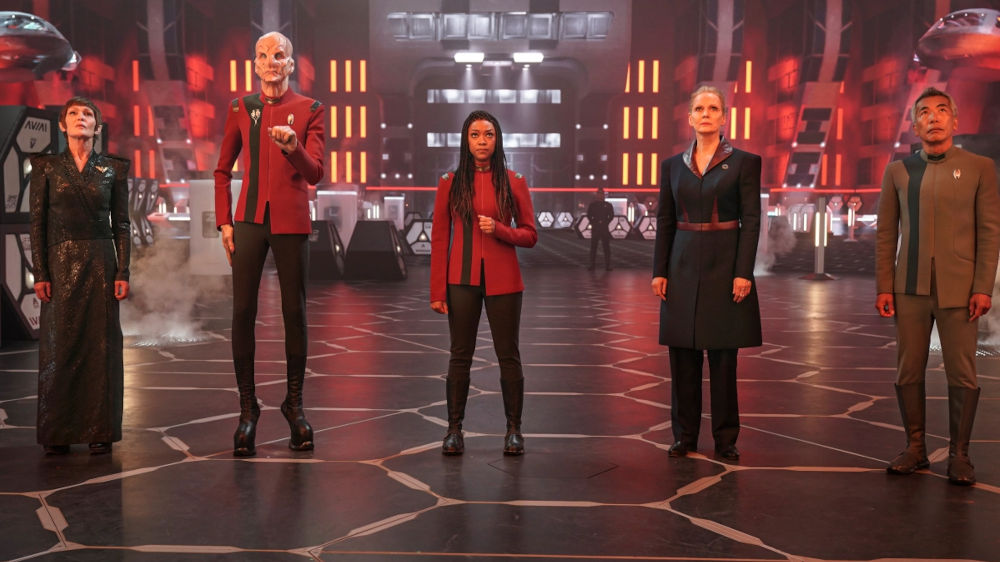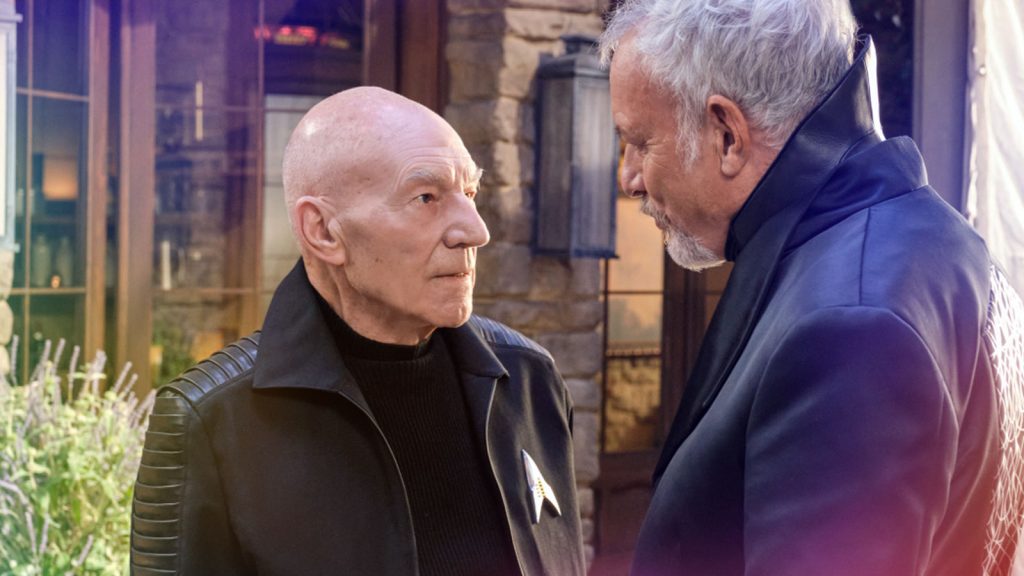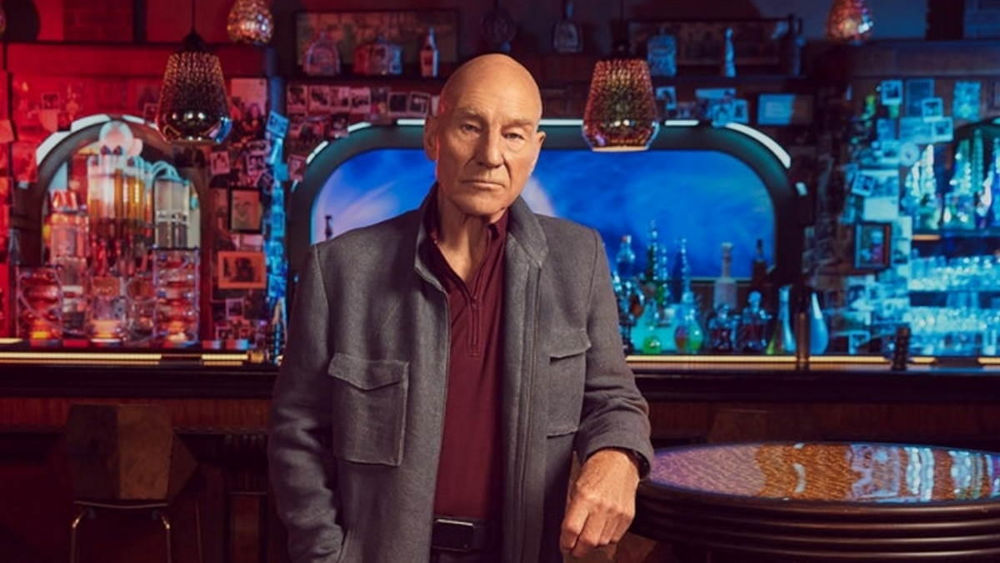Article Content
Reviews: ‘Star Trek: Prodigy’ Season 1, Episodes 1-10

I finally was able to chip away and get reviews done for the first ten episodes of Prodigy’s first season, which is everything that has aired to date. We watch this with our kids, and they enjoy it. It’s their entry point into the Star Trek franchise. Maybe one day they’ll expand to watch some of the other shows.
So, it worked for kids under the age of 10. Did it work for an adult over the age of 45?
Discovery’s first contact with 10-C is an effective arrival

It took a while to get here, and it got a bit tiresome with the padded pace in recent weeks, but we’ve finally reached the destination — the home of unknown Species 10-C. And even though the destination alone can’t make all the stops in the journey along the way worthwhile, this on its own proves to be an effective (partial) payoff that serves as a standout example of well-envisioned Star Trek in its most cerebral science-fiction mode.
We’ve reached Species 10-C’s massive protective hyperfield. What awaits inside is anyone’s guess. The crew sends in some of the DOT drones up to the field. Liquid tentacles pull them in, then pull in the Discovery. We are truly entering the unknown. The crew sends hails. They even attempt to use the chemicals that align with the different types of dust and corresponding emotional states discovered in last week’s "Rosetta." No reply. Either the 10-Cs are ignoring the message or they aren’t receiving it. The crew has no way of knowing which.
Q shows Picard the true savage race

"Penance" is what Q says Picard must provide in this episode, rather than Q serving up one of his traditional tests or trials. It is also one of those, but Q’s mention of a penance raises the question of for whom and why atonement is required. Further raising the stakes and mystery is the fact Q is perhaps "not well," as Picard notes. (I was going to note that John de Lancie was pushing way too hard in angry moments of these scenes, until it became clear this was by design.)
Picard is in a timeline where humanity has realized the full vision of the "savage race" Q once accused them of being — a fascist galactic force that violently attacks and subjugates everyone it encounters, from the Klingons to the Cardassians to the Vulcans.
Podcast: Revisiting the Kelvin-verse in ‘Star Trek’ (2009)

In case you’re interested, I was a guest on Luke and Matt’s Sci-Fi Sanctuary podcast, where we talked about the 2009 reboot Star Trek movie, which of course I reviewed here many years ago.
This was my first time doing a podcast, even though podcasts are everywhere and so many people seem to have one. But Matt and Luke were kind enough to invite me on, and we sat down to record a couple weeks ago.
Now, I’ve never done this before, and I don’t have a voice for radio or any sort of polished on-air presentation, which is why I usually stay behind the keyboard. But I thought it might be fun to try something different.
I talk a little bit about the history of Jammer’s Reviews, then we dive into the subject of Trek ’09, discussing things ranging from new actors stepping into iconic roles, Nero’s strange methodology for sending hails, the way black holes (don’t) work, ship and set designs, and how a movie reboots itself in-universe by using time-travel.
Wow, has it really been 13 years since this movie came out? It doesn’t seem like it.
Once again, ‘Discovery’ finds all the feels

Discovery, over the last two seasons under showrunner Michelle Paradise, has turned into the Star Trek workplace drama that’s all about not only the respectful workplace, but the respectful workplace where we talk openly about our feelings. I’m all for the first thing, considerably less about the second thing, but that’s just me. It’s interesting to see how the show, which was once a breathless throw-everything-at-the-wall free-for-all sensation-generating action series (albeit sometimes more exciting than what it has become), has gradually developed a kind of overarching guiding philosophy that’s more in line with a Trekkian ethos.
Unfortunately, focusing on these components so unrelentingly makes them lose their impact. I rolled my eyes at the ship being unable to make it through the day without a pep talk in "Stormy Weather," because, yeah, it’s a goddamn starship, and at a certain point I’d like to see people (and computers) get through the day and punch the clock so I can watch some procedural spacefaring professionalism. But at this point, everyone being so emotional and sharing all the time has become this series’ mission statement and biggest cliche.
‘Picard’ begins again by balancing classic with new

"The Star Gazer" opens with an action-packed crisis involving an unknown Starfleet vessel, with many of the characters we know aboard it, a furious alien assault, and a countdown to disaster — before then flashing back to "48 hours earlier" and using the entire hour to set everything in place for that big climax. It’s a cliche that’s pervasive in the current era of streaming, as if the producers are so afraid we won’t be patient enough to go along for a ride that builds to that conclusion without first teasing it.
It’s the move of a desperate pilot trying to grab the attention of impatient executives — not an established show with a built-in audience and an already-shooting subsequent season. The opening flash-forward seems all the more unnecessary because "The Star Gazer" does an almost unfathomably good job of setting all the pieces in motion to get us to that moment, allowing us to marinate in the comforting and well-realized atmosphere that is the Federation in what is now the very early 25th century, while also taking its time and exploring the central theme du jour surrounding Picard — his steadfast reluctance toward romantic commitment because of … reasons.
Discovery can’t figure out how to fly over the ‘Galactic Barrier’

The barrier in "The Galactic Barrier" is an arbitrary technobabble device whose sole purpose is to impede our characters’ progress in getting from A to 10-C. If it were a compelling and interesting technobabble device, I could forgive that, but the fact that this episode feels so dramatically inert makes this a pretty tough sell.
This is a bridge episode between last week’s big development where the isolytic weapon was deployed and a future installment where we get our eventual first contact with 10-C. But when a bridge episode feels specifically like we’re being slowed down because there are too many episodes left in the season to unveil the Big Thing right now, it becomes filler.
Discovery reaches the point of no return
![]()
On the whole, "Rubicon" is a well-executed series of cat-and-mouse games between Discovery and Booker/Tarka, with the suspense upped by the parameters of the personal stakes and the ticking clock. Book and Tarka are very close to being ready to deploy the isolytic weapon, and only Discovery now stands in their way.
Burnham has to figure out how to stop them, starting with a hopeful, last-ditch appeal to reason before moving on to potentially deadly force (but first a lot of warning shots). Meanwhile, Stamets attempts to predict the rate of the DMA’s consumption of raw materials in its current region of space, with the logic being the efficiency of the DMA will deplete all available resources before deciding to go somewhere else. If Stamets can provide that estimate, perhaps Burnham can use that information to convince Book to stand down while the first-contact plan is undertaken.
‘Discovery’ goes all in with poker, kickboxing

"All In" describes the subject, but not the spirit, of this week’s episode of Discovery. This is fine as a routine stopgap sort of episode, but the lack of ambition is notable. Fortunately, the lack of ambition is somewhat offset by the fact that at least there’s a solid character core here, even if that character core feels mostly redundant when considering what happened at the end of the previous episode. This episode is not strictly necessary, but then what episode of television is? (I guess it’s probably a problem if I’m waxing philosophic on the existence of all television episodes.)
When you consider the previous episode ended with Booker deciding to go with Tarka to pursue their forbidden mission to destroy the DMA, do you really need "All In" to explicitly show how Booker and Burnham come to grips with that realization and further affirm to each other that they’re committed to their positions? On the one hand, Sonequa Martin-Green and David Ajala do a good job of making me believe the emotional stakes of this relationship. On the other hand, setting this aboard an alien port amid the major set pieces of an Epic Cage Fight and a High-Stakes Poker Tournament feels a bit tropey. It’s like a TOS throwback hour.
‘But to Connect’ puts the discovery in ‘Discovery’

I struggled quite a bit with the idea of the ship unable to carry out key functions as a result of a crippling emotional crisis in "Stormy Weather." At the end of the day, it just seemed ridiculous, even wrong, that a computer that’s supposed to simply do what it’s instructed to do would fail in this particular way, on a show that’s always constantly mired in the emotions of its human characters. It was an annoying complication in a straightforward anomaly/mystery/jeopardy story that otherwise seemed to be on solid footing.
But with "But to Connect," I see everything now regarding Zora in a much larger and more impressive scope. This episode finally fully explores what I had hoped would be explored when the sphere data merged with the ship way back in the second season (and something it has been hinting around at ever since but without really committing the time to deal with): Zora as an artificial lifeform that has reached a level of sentience that can no longer be brushed aside by the plot. This episode started to win me over when it had Stamets arguing the same viewpoint I held — that having everyone’s lives depend on an emotional computer that could shut off the life support if it’s having a bad day is, well, a very bad and dangerous and untenable thing. (I was fully on #TeamStamets with his argument that they simply could not let this stand.) But what’s even more impressive is how the argument keeps going and introduces other points of view from the other characters, and how this episode persuaded me with these arguments while its characters were persuading Stamets. Good stuff.
